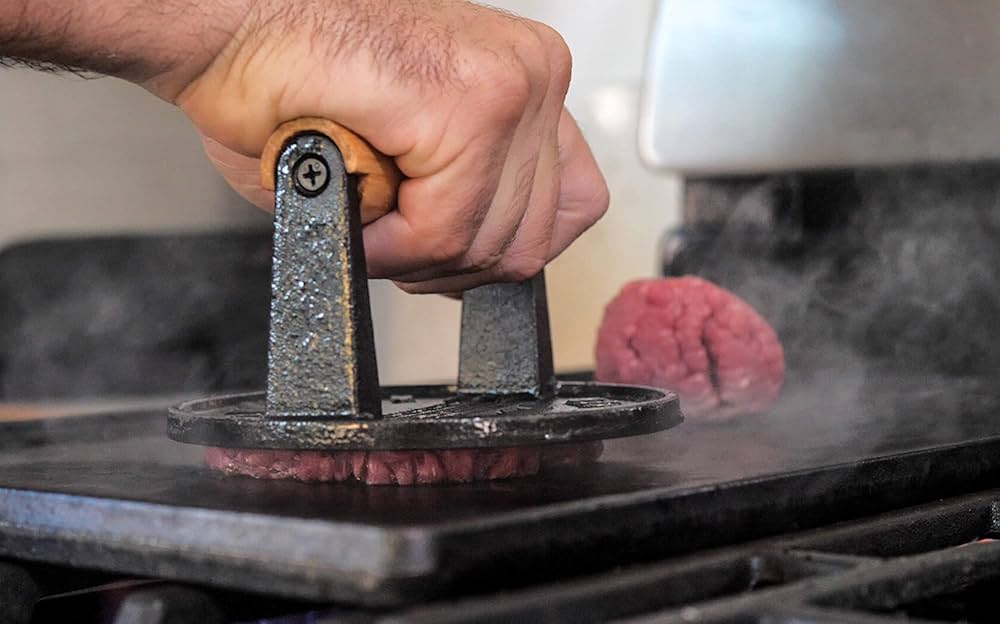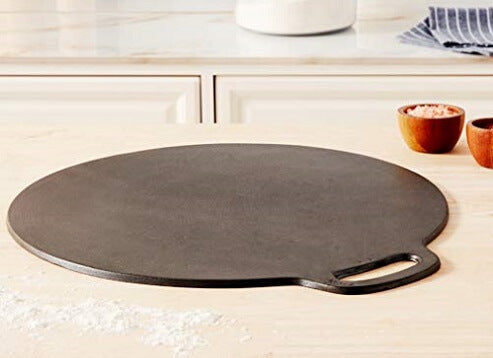Why did my baking stone crack? It's a question that has puzzled many devoted kitchen professionals who have experienced the disheartening sound of a favorite baking stone splitting apart. For culinary experts who rely on this essential tool to craft perfectly crisp pizzas or perfectly roasted vegetables, understanding the reasons behind a baking stone's unexpected demise is crucial. Discovering the culprits can prevent future mishaps in the kitchen.

:max_bytes(150000):strip_icc()/pizza-stone-testing-winners-lodge-pre-seasoned-cast-iron-baking-pan-wdickey-3-07-4acd6ee95c134013907ffa659ffb212d.jpeg)
Understanding the Basics of Baking Stones
Baking stones, also known as pizza stones, are fundamental for creating even heat distribution in an oven, resulting in a crispy crust. However, when a baking stone cracks, it often comes as a surprise, leaving professionals questioning every step in their baking process.
Common Causes of Baking Stone Cracks
Thermal Shock
One of the most frequent causes of a baking stone's fracture is thermal shock. When a cold baking stone is exposed to a sudden temperature change, such as going directly from the refrigerator to a hot oven, it can result in a crack. Stones should always be allowed to reach room temperature before exposure to heat.Improper Cleaning Techniques
Using water to clean a hot stone can lead to cracking. Instead, it's recommended to clean stones only after they have completely cooled and to avoid submerging them in water altogether. To delve into the proper methods, consider reading our detailed guide on cleaning methods for different kitchen materials.Overloading the Stone
A baking stone can become overwhelmed by excessive weight or the use of metal utensils that might compromise its structural integrity. It is essential to understand the maximum capacity of your baking stone to avoid fractures from overloading.Preventing Cracks in Your Baking Stone
Maintaining the longevity of a baking stone requires a keen understanding of its limitations and proper usage.Gradual Temperature Changes
To avoid thermal shock, always ensure the stone gradually reaches the desired cooking temperature. Place the stone in a cold oven, allowing it to heat as the oven does, ensuring even heat distribution and reducing the likelihood of a crack.Regular Maintenance
Regular inspections for small stress fractures can help prevent larger breaks from occurring. For additional insights on kitchen maintenance techniques, visit our comprehensive article on kitchen essentials.Using the Right Tools
Avoid using metal utensils directly on the baking stone surface. Instead, opt for softer materials that won't scratch or chip the stone. Explore our guide on proper grilling tools.Conclusion: Mastering Baking Stone Care
Cracked baking stones can interrupt your kitchen workflow and impede your ability to deliver the perfect dish. Understanding the causes and taking preventative measures ensures that your baking stone lasts, offering you countless delicious creations from perfectly crisped pizzas to beautifully roasted vegetables. Explore the art of using baking stones beyond their usual purpose in this creative guide.:max_bytes(150000):strip_icc()/pizza-stone-testing-winners-lodge-pre-seasoned-cast-iron-baking-pan-wdickey-3-07-4acd6ee95c134013907ffa659ffb212d.jpeg)
FAQ
How can I avoid thermal shock with my baking stone?
Avoid placing a cold baking stone into a hot oven. Gradually heat the stone alongside the oven to prevent sudden temperature changes that cause cracks.What are the signs that my baking stone is at risk of cracking?
Inspect for small hairline fractures or chips regularly. These can indicate a structural weakness and the potential for a larger crack.Can I still use a cracked baking stone?
In many cases, minor cracks do not impact the stone's performance. However, deeper cracks may compromise its function. For more on maintaining kitchen tools, check out our insights.This article contains affiliate links. We may earn a commission at no extra cost to you.






Leave a comment
This site is protected by hCaptcha and the hCaptcha Privacy Policy and Terms of Service apply.